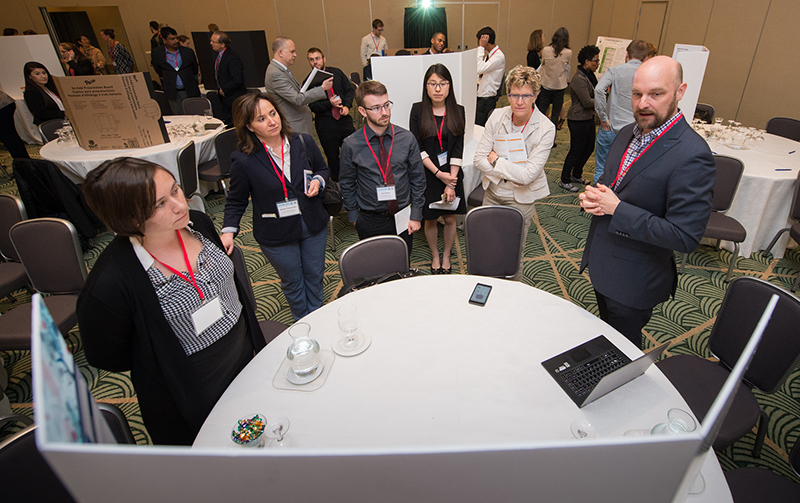All hands on deck as LSC-led conferences shape the future of graduate education
May 09, 2016
Maryland Language Science Center

http://futurestemleaders.com/nrt-meeting-2016/ (NRT Teams Annual Meeting) http://futurestemleaders.com/ (Future STEM Leaders Meeting) http://go.umd.edu/nrt2016photo (NRT Teams Annual Meeting) http://go.umd.edu/fsl2016photo (Future STEM Leaders Meeting) Last week was an exciting time for Language Science faculty and students, as we organized two conferences on transforming graduate education - both with collaborative, interactive formats that generated a lot of enthusiasm and ideas from the different groups involved. As one of the first cohort of NSF Research Traineeship (NRT) award recipients, we volunteered to host the first annual meeting of NRT teams. We also took advantage of our location in the DC area to hold an additional, outward-facing event that would bring together experts from government, industry and foundations with a stake in the future of graduate education. Training creative scientists is at the core of what Maryland Language Science does, and we have been very fortunate that NSF has supported us with two training grants. These awards have transformed our community, so we were thrilled to bring together a large group of like-minded people to work on updating graduate training models to meet the demands of future careers. For the first two days we hosted 100 people from the 18 universities that hold NRT training grants. Faculty, students and coordinators from diverse fields of science and engineering -- from aero-ecology to polymer science (and, of course, language science) -- met in the Stamp Student Union for a series of interactive, hands-on sessions to brainstorm ideas for improving our programs, and to develop strategies for sustaining and scaling up effective training practices. We had hoped for some good discussions, but the energy and ideas that participants brought to the meeting blew us away. Faculty from many different NRT teams led sessions and shared their own expertise. Students contributed thoughtfully on the various issues that impact their training, and offered fresh perspectives on the institutional, disciplinary and policy challenges in reforming graduate education. The session on student ownership of programs generated a great deal of interest; we already knew that this had a dramatic effect on our own community, and we look forward to seeing its impact on other teams. More information about the meeting themes and participating universities can be found on the NRT meeting website After two productive days at the University of Maryland with the NRT teams, we journeyed downtown to the Ronald Reagan Building to join with experts from academia, government, foundations, professional organizations, and industry for the Future STEM Leaders (FSL) meeting. These different constituencies are all invested in the future of graduate education but do not often cross paths. The first goal of this meeting was to generate dialog. That definitely worked. The second goal was to address the scalability challenge - how to inspire adoption of new training models in graduate programs that NSF, NIH and other agencies are not paying for directly. That is a harder nut to crack. The final session of FSL focused on identifying next steps towards lasting change in graduate education. For starters, we will be distilling some of the outcomes from the meetings and we are looking forward to collaborating with other participants to take action on some of the great ideas that emerged. More information about sessions and speakers can be found on the Future STEM Leaders website Photos from the events: NRT Teams Meeting: http://go.umd.edu/nrt2016photo FSL Meeting: http://go.umd.edu/fsl2016photo



